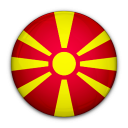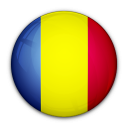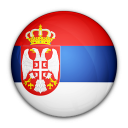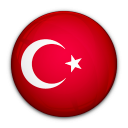
Lithuania
Lithuania, Klaipeda Maksim Gorky progymnasium

Klaipeda Maksim Gorky progymnasium is a secondary and primary school. The curriculum is implemented in accordance with the formal and non-formal educational programme. As well, school implements an attractive, creative, modern, safe, humanistic and pedagogical principles. An educational institution is opened to cooperate constantly. Our school is ready for learning and improving. Here are implemented needs of individual, primary and the secondary education. According to the non-formal educational programme our school implements purposeful, artistic activity (theater). A safe environment brings up responsible, active and creative students. Students are prepared for positive activity in their family. Schools and national traditions are being developed. Student’s activities are based on universal values and democratic principles.
Pupils of various nationalities are studying at the progymnasium of Maksimas Gorkis in Klaipėda. Pupils are educated in their native Russian language, but Lithuanian language is the official one. The school employs 70 teachers (6 teachers-experts, 49 teacher-methodologist, 15 senior teachers) and 700 students. There are 400 pupils in primary school and others in high school. The school is an attractive, creative, modern and safe institution based on humanistic and pedagogical principles. A safe environment encourages responsible, active and creative students.
Teachers often use their work computers and computer programs. Primary school pupils have additional computer classes. During these sessions, the students draw, playing at their own situations.

He participated in the contest tales, where the illustrations created by computer.
All school teachers are willing to use computer technology in their subject lessons.
Informatics teacher teaches children to work a computer.
Teachers are looking for ways to increase students’ learning motivation, creativity and critical thinking.
Often organizes the educational process in other educational spaces (museum, shop, library, park, city squares, headquarters, etc.), conducts integrated subjects (Lithuanian and world knowledge; mathematics and physical education, etc.).
The school fosters state and calendar festivals, customs and traditions. Calendar holidays such as Easter, Christmas and more pupils celebrate in two cultures: their own and Lithuanians. Pupils analyze the customs, traditions of nations, and compare them. Pupils read fairy tales, watch folk dance steps, listen to folk songs and try to sing them themselves. Using ICT, in informatics lessons, create folk patterns and color them.
Ceramic teacher, during the classes, teaches to model plates, cups, decorate them with folk patterns and drawings.
Through integrated lessons of the world and the Lithuanian languages, pupils get acquainted with the national birds, beasts and prepare projects.
Teachers and pupils have a great opportunity to take an educational lessons in towns where there







